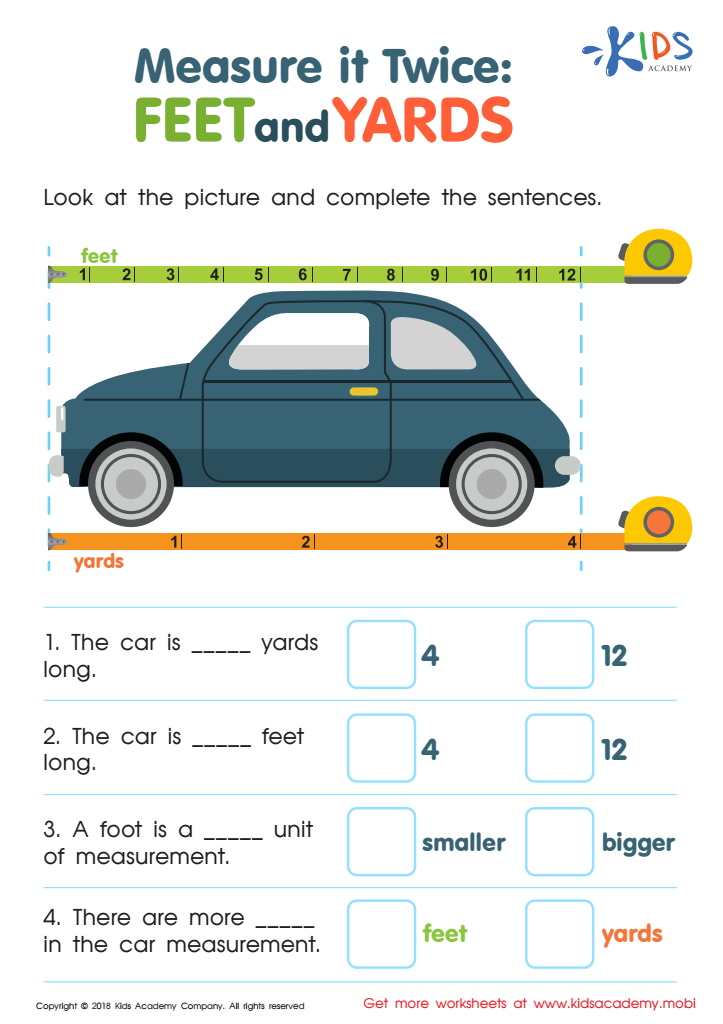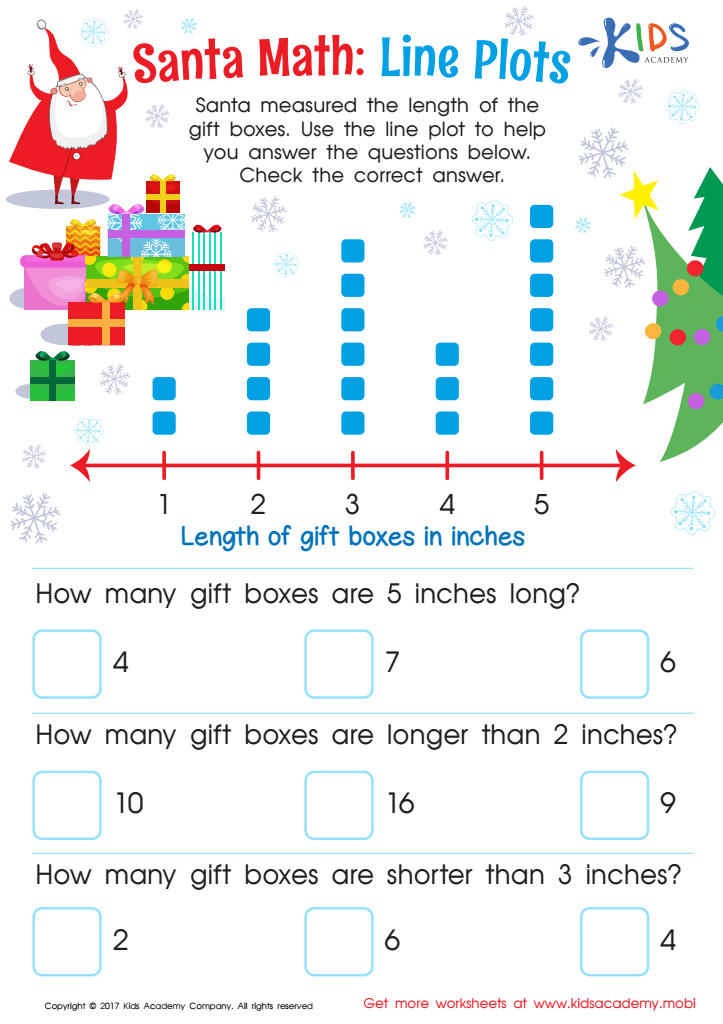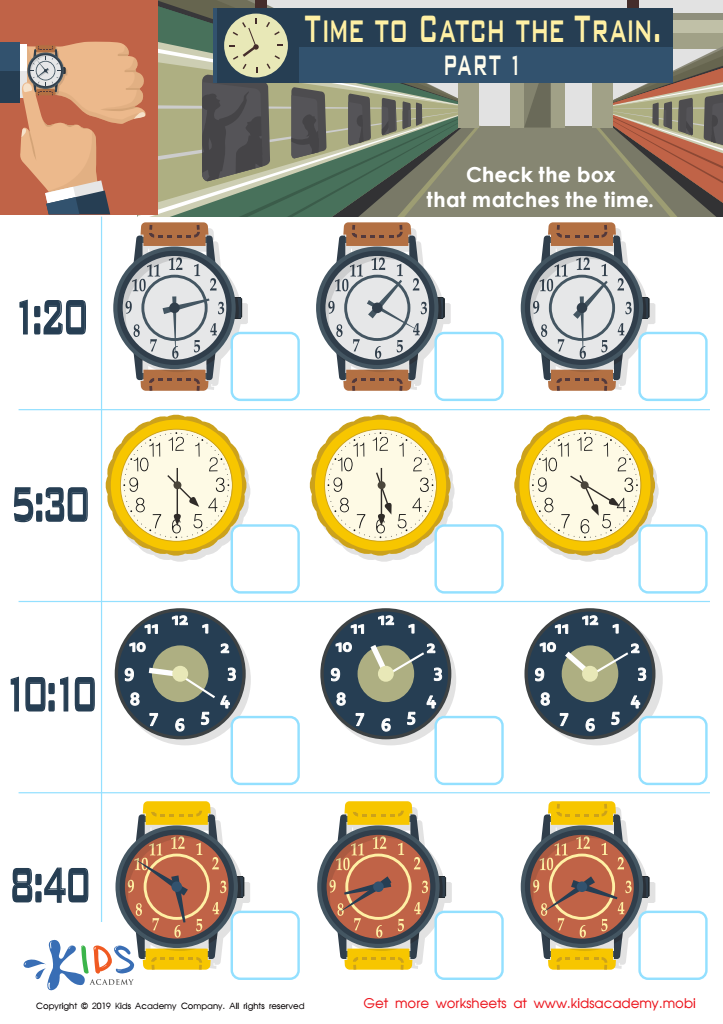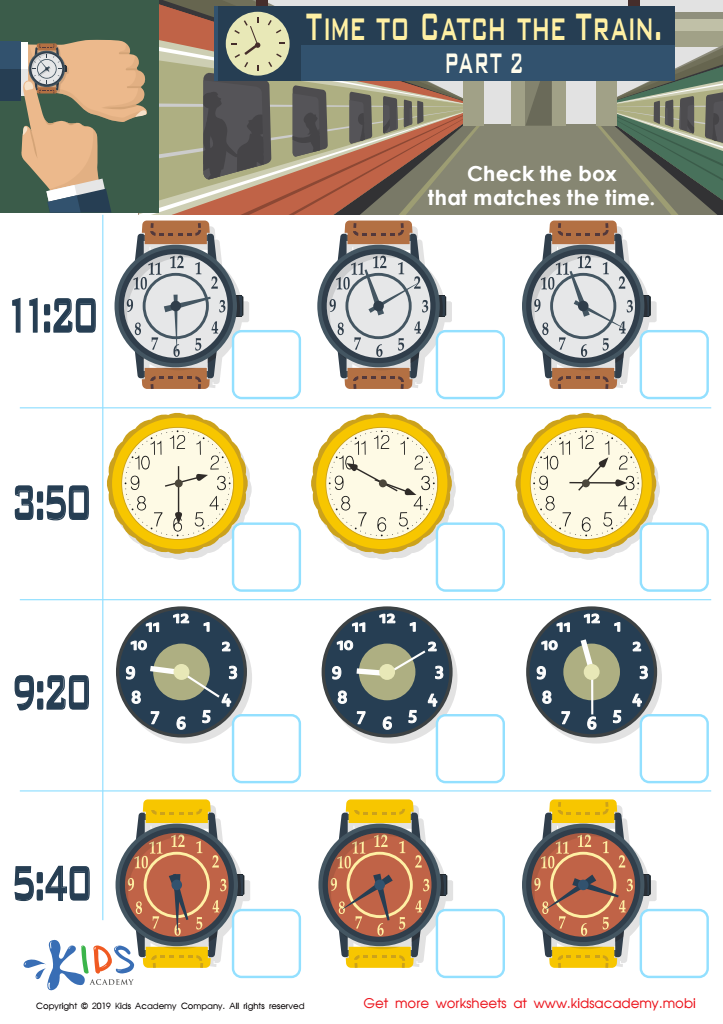Problem-Solving Skills Normal Measurement Worksheets for Ages 3-7
4 filtered results
-
From - To
Boost your child's problem-solving skills with our engaging Normal Measurement Worksheets designed for ages 3-7. These worksheets provide a fun and interactive way for young learners to grasp fundamental measurement concepts while developing critical thinking abilities. Each activity encourages kids to apply their understanding of measurements in real-world scenarios, enhancing their analytical skills and boosting their confidence. Our resources are curriculum-aligned, ensuring they support early learners on their educational journey. Perfect for home or classroom use, these worksheets make learning measurements enjoyable while fostering essential problem-solving competencies in young minds. Explore our collection and start your child's learning adventure today!


Measure It Twice: Feet and Yards Worksheet


Line Plot Worksheet


Time to Catch the Train Part 1 Worksheet


Time to Catch the Train Part 2 Worksheet
Problem-solving skills are crucial for children aged 3-7 as they form the foundation for future learning and development. During these formative years, children's cognitive abilities are rapidly developing, and these skills help them navigate challenges and everyday situations. Understanding normal measurement of problem-solving skills at this age can provide parents and teachers with valuable information about a child’s progress and areas that may need support.
Problem-solving plays a significant role in fostering critical thinking and creativity. When children learn to approach problems, they develop resilience and the ability to think independently. These skills not only contribute to academic success but also encourage social skills, as children learn to collaborate with peers and adults to find solutions.
Moreover, assessing problem-solving skills allows educators and parents to tailor learning experiences that reflect each child's needs, offering targeted support where necessary. Children who struggle may benefit from structured guidance, while those who excel can be challenged further, promoting enrichment.
Investing time in nurturing problem-solving abilities via games, puzzles, and hands-on activities opens doors for cooperation, perseverance, and effectively managing emotions. Thus, fostering these skills is essential for holistic child development, ensuring they have the tools necessary for lifelong learning.
 Assign to My Students
Assign to My Students
















